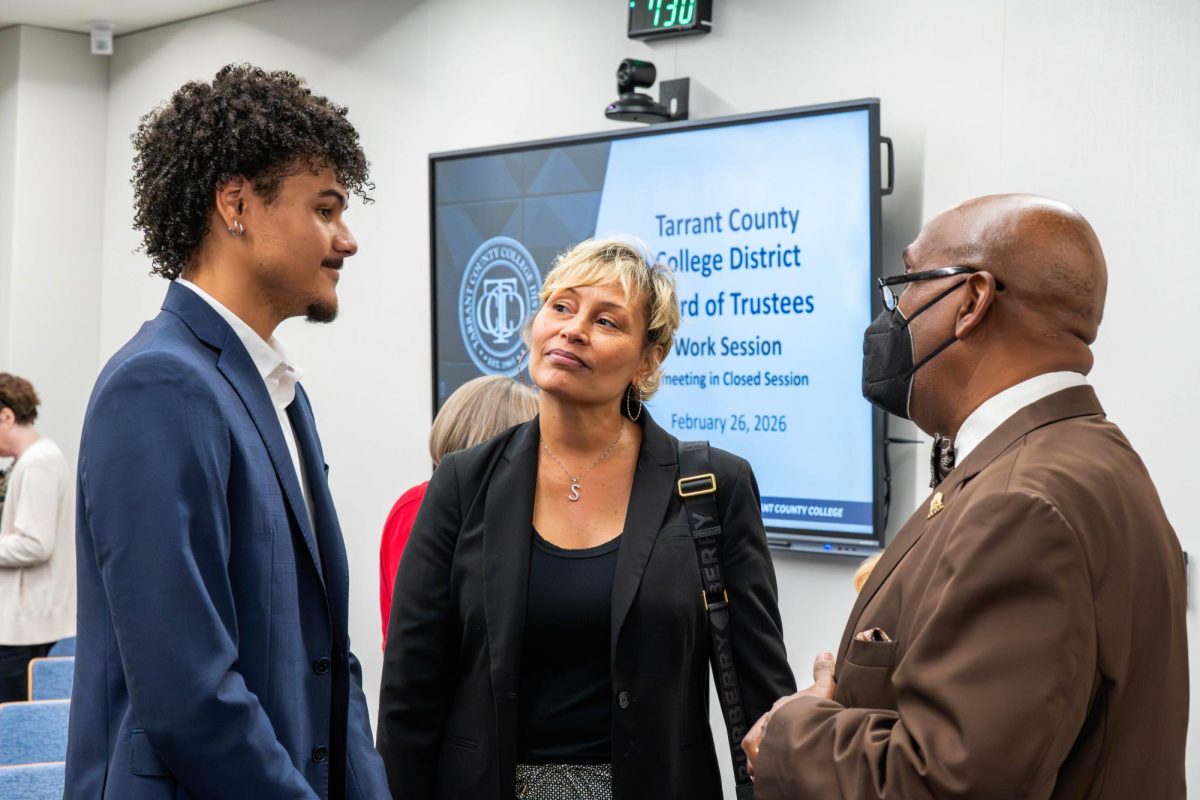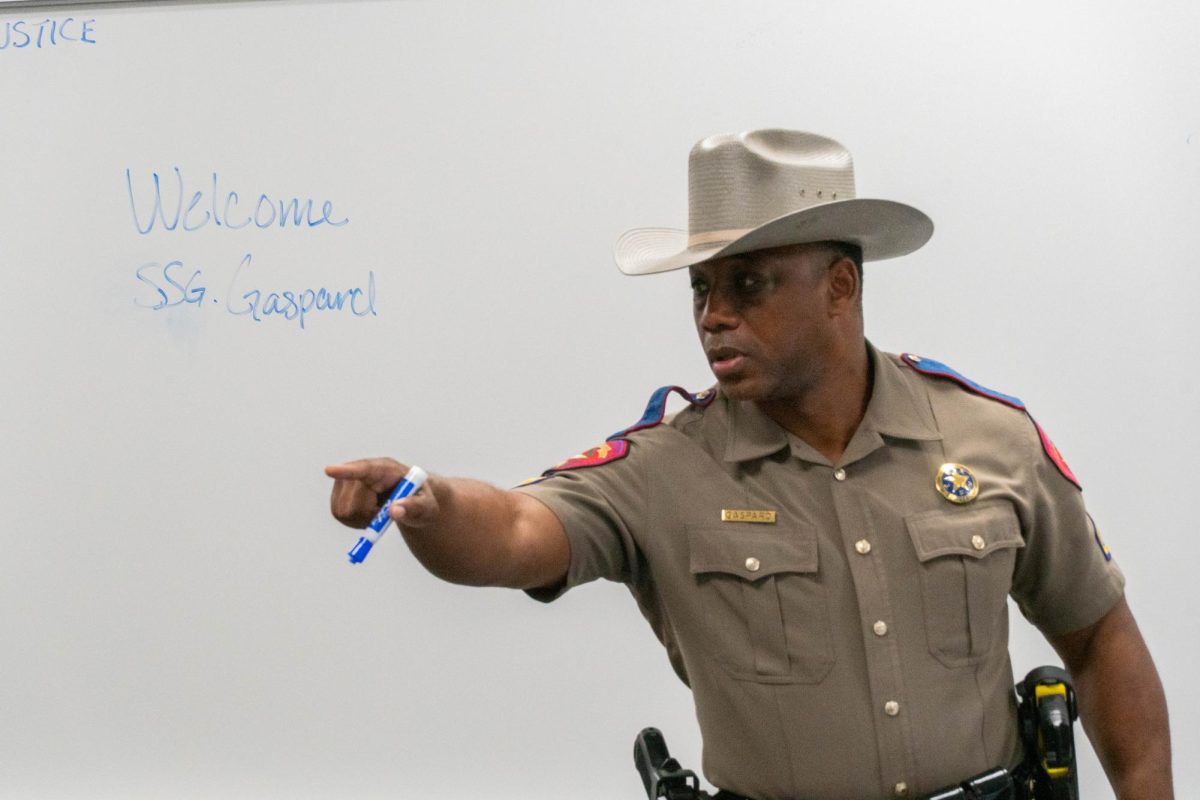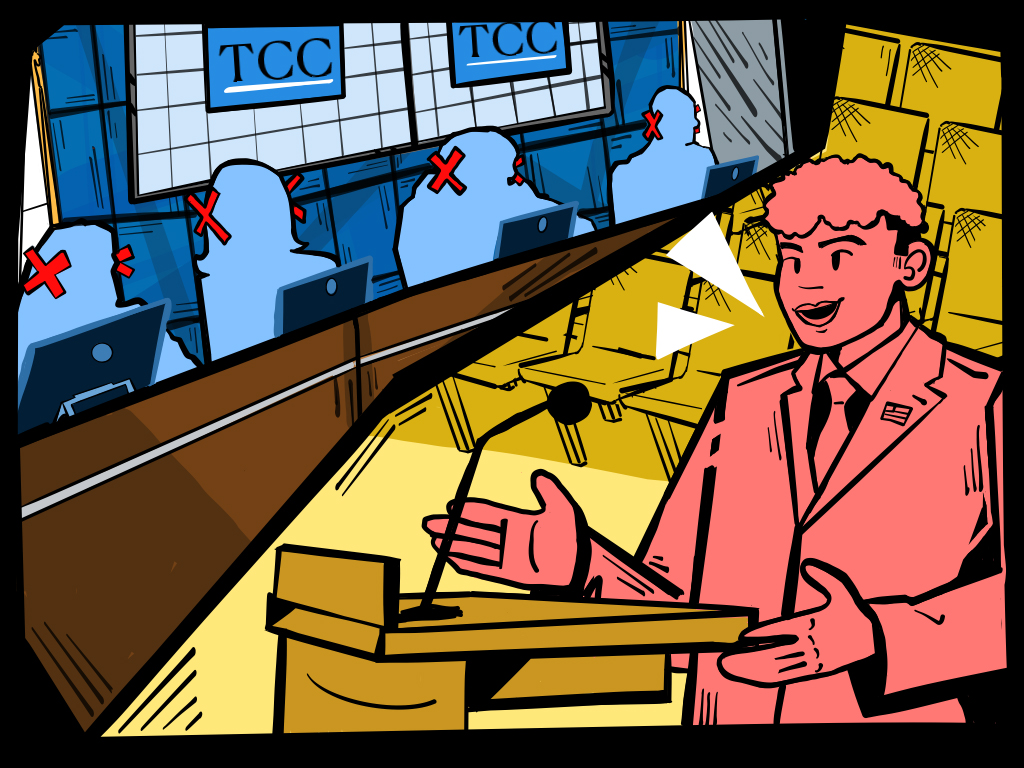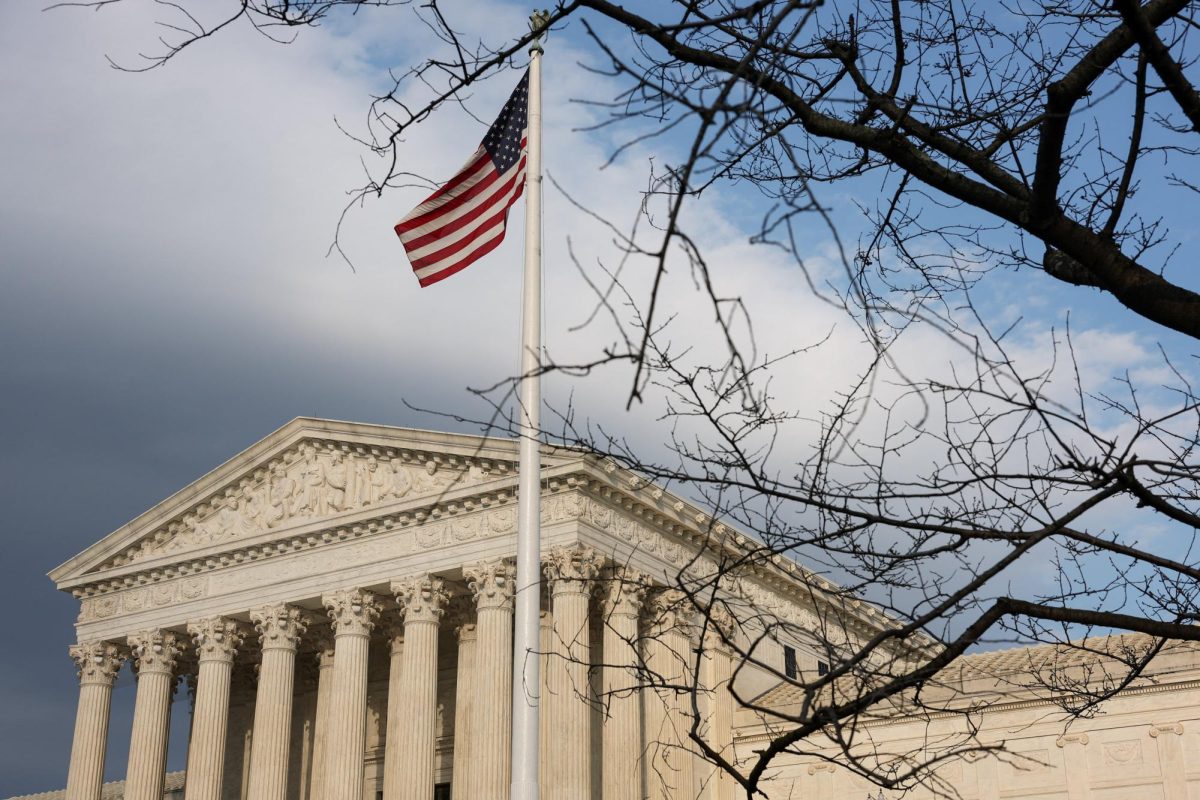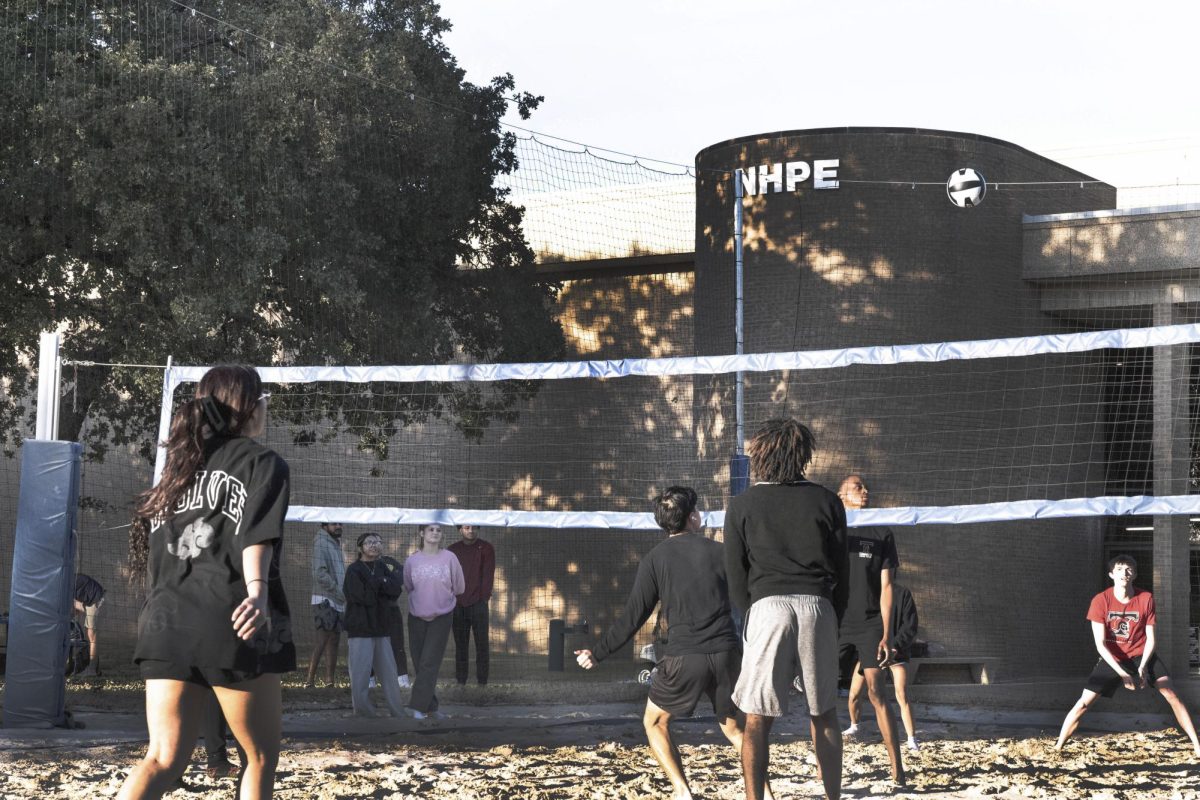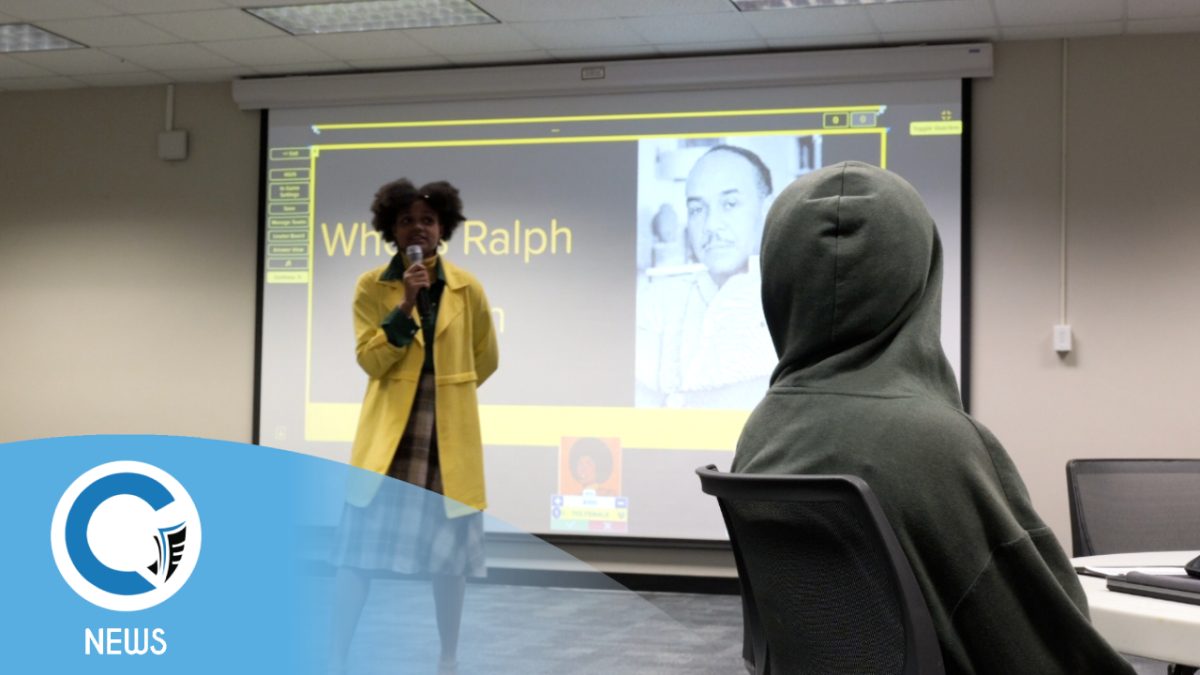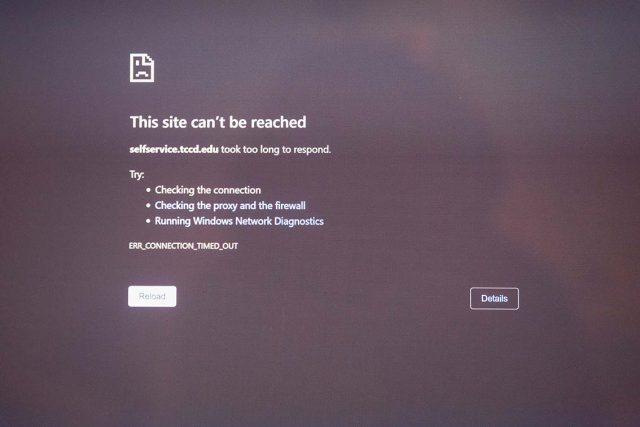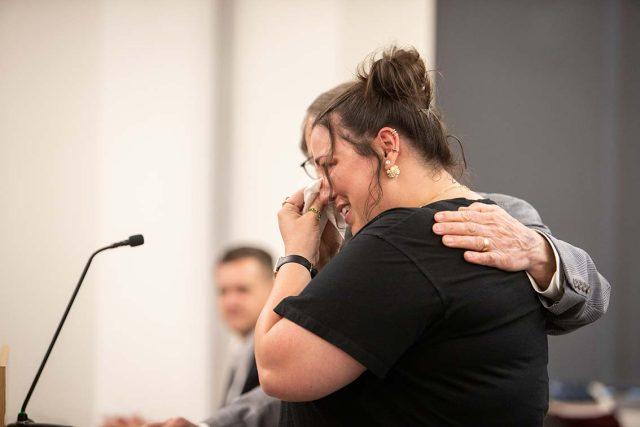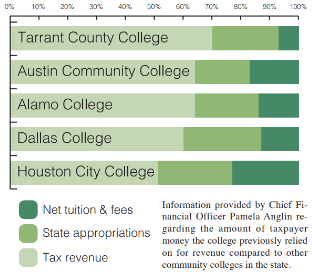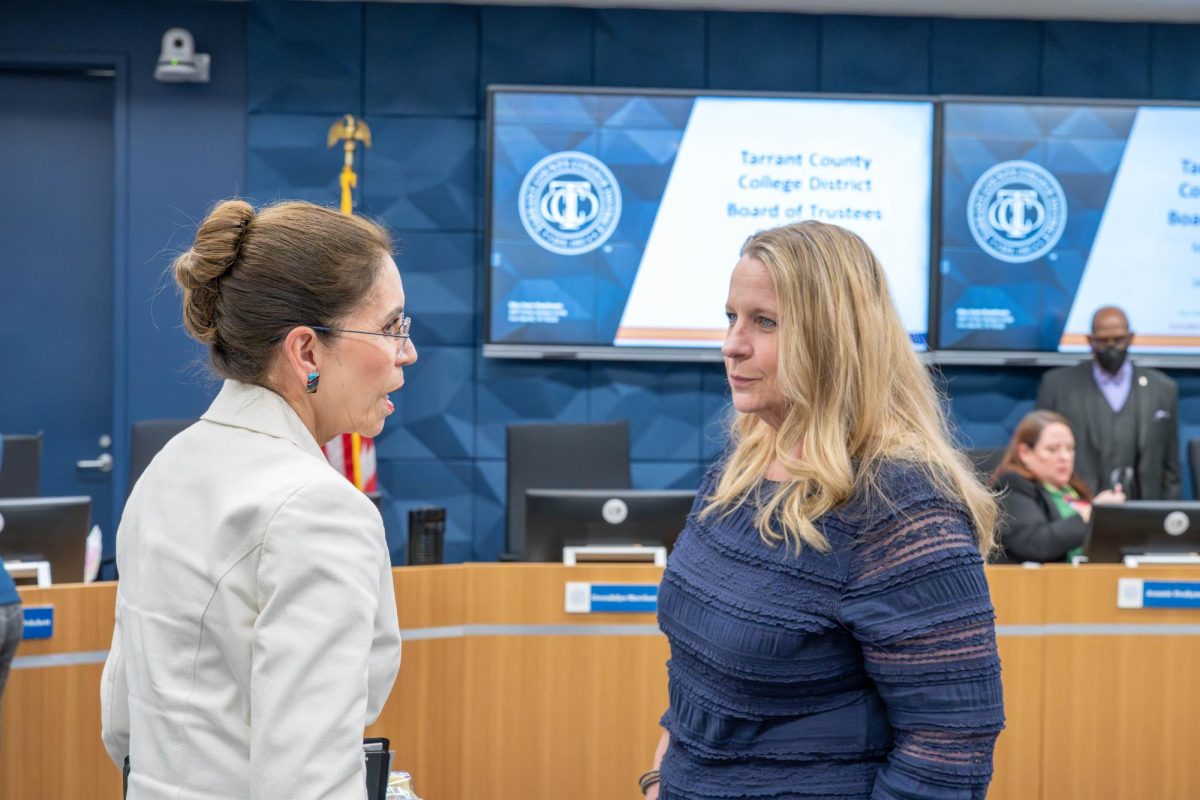ALEX HOBEN
editor-in-chief
A name is a fundamental part of a person’s personality. Yet, for some trans and nonbinary students at TCC, the right to be referred to by their chosen name is taken away.
Deadnaming is the practice of referring to trans and nonbinary individuals by their birth names rather than the name that best represents their identity. For many in the LGBTQ+ community, being deadnamed invalidates their identity, leading to stress and even trauma.
At TCC, many students in the queer community have noticed a disparity between the message of inclusivity that drives the college and what is actually offered to students.
“It feels like TCC does not care about preferred names at all, even if the individual students overwhelmingly do,” Amber, a NE student said.
Amber, who declined to give her last name due to a fear of retaliation from those around her, said that while her social experience with students has been fine as a trans woman, the same could not be said for official institutions such as Canvas, especially when there are class rosters that still present deadnames.
“I couldn’t find anybody in Canvas who had a preferred name,” she said. “Even though I did find multiple people using their dead names, even people that are publicly out, which should tell you something about the way the TCC handles naming.”
NE student Jane Mahoney said she has had an overall positive experience regarding teachers and students respecting her name and pronouns, but there are still disparities in the system with attendance.
“I have always put Jane as my name for classwork and have yet to have an issue with it,” she said. “However, on attendance sheets, when passed around or on the first day of class, some teachers initially called me by my deadname. This is incredibly embarrassing. It feels like everyone in the class now knows that I am transgender. That is an uncomfortable thought for classmates to know something so personal.”
Mahoney utilized the service provided by the TCC registrar’s office to have her “preferred name” used on documents such as attendance sheets. But she said that it’s not enough and instead can be potentially dangerous, considering the way the name shows on the records is having their deadname and then their preferred name in parentheses after it.
“Meaning that everyone is still able to see your deadname,” she said. “Having your deadname on an attendance sheet when you have expressed your preferred name is unnecessary and possibly hurtful. Not only are you outing this person to the entire class, but if a transphobic person decides to take action, you are now putting this person in potential danger.”
Amber said that she didn’t know there was a system in place to add preferred names, even in parentheses, because it’s hard to find any information about it. She couldn’t find any page on the TCC website for how to start the process.
Chloe October, a nonbinary NE student, said they wish there was more choice about what name was used in private and public spaces, especially in the email system.
“I feel violated when I am deadnamed – like someone used the name of a late relative too soon. It makes the environment feel more hostile,” October said. “The TCC naming system never changing, even after a legal name change, makes me feel like a nagging annoyance. I sort of gaslight myself into thinking it’s somehow my fault for finding my identity too late.”
Amber said it doesn’t make sense that TCC’s naming system doesn’t have much flexibility considering that it’s the IDs that are how the student is designated in the system.
“We can change our name 50 times in a semester and as far as the TCC database is concerned, nothing’s going to change,” she said. “So I don’t understand why exactly they’re so hellbent on keeping the deadname. You should just be able to change the name whenever you need to because they’ve got the ID, and the ID is constant.”
District registrar John Spencer said any students looking to change their chosen first names may do so by completing the Records Maintenance Form and submitting it by email to academic.records@tccd.edu or they can do so by submitting a name change request form to the admissions and registrar’s office.
“Using a chosen name in the classroom and on our campus frontlines is a proven best practice,” Spencer said. “It not only empowers students but also fosters an environment of inclusion, respect and dignity. This practice helps in promoting safe and welcoming spaces at each of our campuses.”
Spencer said students can advocate for changes by talking with their student government association.
TR SGA president Milo Norris said that while he hasn’t been deadnamed a lot at TCC he has been misgendered quite a few times and explained how being deadnamed and misgendered is not only harmful for the trans community but for society as a whole.
“Whether on purpose or by accident, these actions are divisive,” he said. “What we need is to recognize that trans people are just other people. My transness does give me a different perspective on life, but everyone has a different perspective on life.”
Referring to someone by their preferred name is a basic form of respect, Mahoney and October said, and that many don’t realize how such a simple act can mean so much for the person they’re referring to.
“I just want to point out how low the bar is, that referring to someone as the correct gender or with the right name could be enough to make their day,” October said. “That speaks a lot to the trans experience.”
Amber said she doesn’t mind as much as some others in the LGBTQ+ community when she is deadnamed, but that doesn’t mean it’s an OK thing to do. She has realized that what is most important to her is that the people close to her know her identity as she has realized it.
“I think a while ago I kind of came to terms with the fact that the first thing that everyone’s gonna see when they think about me is the fact that I’m trans,” she said. “And then it just kind of became, how can I make the best of that? And then I made the best of that.”


